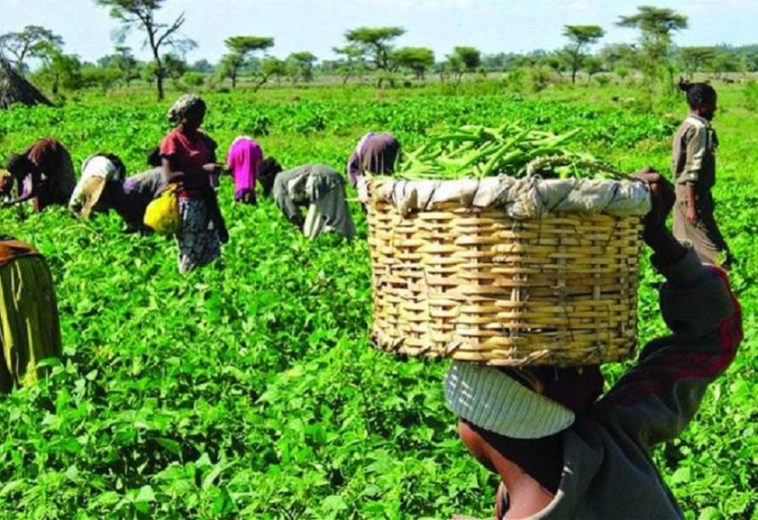Science, Technology, Engineering, and Mathematics (STEM) have long served as the launchpads for transformative global change. In Africa, a new generation of leaders is rewriting the narrative, proving that innovation knows no boundaries.
These trailblazers are not only shaping the continent’s future but also exporting African ingenuity to the world. Their stories form a tapestry of resilience, creativity, and ambition—a movement that breaks barriers, transcends borders, and redefines possibilities.
A 2024 report by the African Union Commission and the OECD highlights a critical gap: across 15 African countries, only 9% of youth aged 15–24 possess basic computer skills. Similarly, only 10% of the male workforce and 7% of the female workforce have these competencies. Enhancing digital literacy and technical expertise is essential for Africa to remain competitive in the global economy and to drive sustainable growth.
READ ALSO: Can Africa Achieve a STEM Education Revolution?
By 2030, young Africans are projected to constitute 42% of the global youth population and 75% of those under 35 within Africa. While this demographic boom presents an immense opportunity for economic growth, innovation, and job creation, it also underscores the pronounced skills gap in STEM fields—a challenge that must be addressed urgently.
To meet the growing demand for skilled professionals in engineering, healthcare, IT, and other vital sectors, Africa will require an additional 23 million STEM graduates by 2030 to fill key roles.
From Baobab Roots to Silicon Heights
African innovators in STEM draw inspiration from the continent’s rich traditions and inherent resilience. Like the sturdy baobab tree, their ideas are deeply rooted in African soil, yet their branches extend globally.
The late Dr Wangari Maathai, a Kenyan environmentalist and biologist, epitomised this ethos by blending scientific principles with grassroots activism. Her efforts earned Africa its first Nobel Peace Prize and continue to inspire scientists addressing climate change through green technology innovations.
In Ethiopia, Dr Segenet Kelemu, a molecular plant pathologist, has revolutionised agricultural science. As the first African woman to lead the International Centre for Insect Physiology and Ecology (ICIPE), she has tackled food insecurity by promoting eco-friendly pest control solutions, influencing agricultural research worldwide.
Guiding the Future
Across the continent, STEM icons illuminate the path for a new generation of thinkers and creators. Silas Adekunle, the Nigerian robotics engineer behind the world’s first gaming robot, is one such beacon. His company, Reach Robotics, redefined the intersection of robotics and entertainment, capturing the interest of investors globally.
In Rwanda, Paula Ingabire, Minister of ICT and Innovation, is steering the nation towards a digital renaissance. Initiatives like the Kigali Innovation City showcase Rwanda’s transformation into a technological hub, exemplifying how policy and science can synergise to drive economic growth.
Bridges of Knowledge
Africa’s STEM pioneers are bridge-builders, connecting local challenges to global opportunities. Dr Cheick Modibo Diarra, a Malian astrophysicist and former NASA Jet Propulsion Laboratory engineer, exemplifies this spirit. His work on interplanetary missions, such as the Mars Pathfinder, inspires African youth to view the universe as a canvas for exploration. After his tenure at NASA, he returned to Africa to champion education and technology, proving that global impact and local development can coexist.
Similarly, in healthcare, Dr Ola Brown, founder of Flying Doctors Nigeria, is closing critical healthcare gaps through aviation. Her air ambulance services dramatically reduce medical response times in remote areas, blending engineering, logistics, and medicine to save lives and foster global health-tech partnerships.
Mining Africa’s STEM Potential
Africa’s digital revolution is driven by innovators who see data as the new frontier of wealth creation. Dr Nneile Nkholise, a South African mechanical engineer, has harnessed data in creating 3D-printed prosthetics through her company, iMed Tech. Her work addresses healthcare infrastructure challenges, enhancing lives and showcasing the potential of digital fabrication technologies on the continent.
Dr Rebecca Enonchong, a Cameroonian tech entrepreneur, further demonstrates how data can propel inclusive growth. Her company, AppsTech, has delivered enterprise software solutions to over 50 countries, affirming Africa’s capability to export technological expertise.
STEM Stars
Mentorship and education are twin engines propelling African STEM leaders onto the global stage. Initiatives such as Africa Code Week, supported by global partners, have trained over 10 million young Africans in coding and programming since 2015. These programmes ensure that the brilliance of STEM luminaries continues to inspire aspiring innovators.
For example, Ghana’s Ivy Barley founded Developers in Vogue to empower African women with tech skills, addressing gender disparity in STEM. Her work enables a generation of women to shatter glass ceilings with algorithms and code.
Africa must invest in its STEM ecosystem to sustain this wave of innovation. Currently, the continent contributes less than 1% of global scientific research output, according to UNESCO. This stark statistic underscores the urgent need for greater funding and institutional support. Initiatives such as the African Union’s Science, Technology and Innovation Strategy for Africa 2024 (STISA-2024) aim to address this gap, but progress requires concerted efforts from governments, private sectors, and international partners.
Writing the Next Chapter
The story of African icons in STEM is one of resilience, ingenuity, and boundless potential. By addressing local challenges with solutions of global relevance, they are shaping a future where African innovation takes centre stage in tackling humanity’s greatest problems. The baobab of African STEM has taken root, and its branches will only grow stronger, shading the world with the promise of progress.




